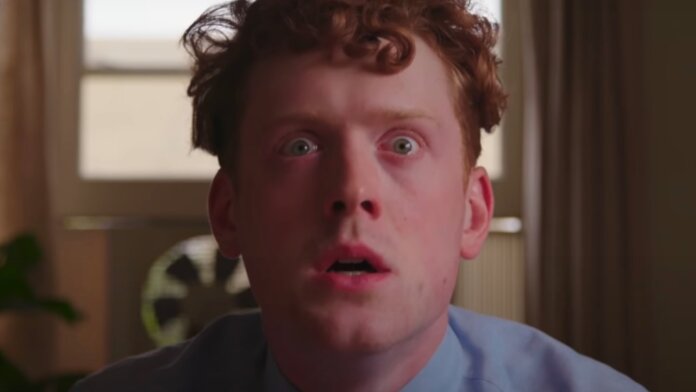OpenAI’s text generating AI has gotten a lot of buzz since its release in June. It’s been used to post comments on Reddit, write a poem roasting Elon Musk, and even write an entire article in The Guardian (which editors admitted they worked on and tweaked just as they would a human-written op ed).
When the system learned to autocomplete images without having been specifically trained to do so (as well as write code, translate between languages, and do math) it even got people speculating whether GPT-3 might be the gateway to artificial general intelligence (it’s probably not).
Now there’s another feat to add to GPT-3’s list: it wrote a screenplay.
It’s short, and weird, and honestly not that good. But… it’s also not all that bad, especially given that it was written by a machine.
The three-and-half-minute short film shows a man knocking on a woman’s door and sharing a story about an accident he was in. It’s hard to tell where the storyline is going, but surprises viewers with what could be considered a twist ending.
The students that created the film used a tool derived from GPT-3 called Shortly Read to write the screenplay. They wrote the first several lines then let the AI take over. The lines the students wrote simply set the scene (“Barb’s reading a book. A knock on the door. She stands and opens it. Rudy, goofy-looking, stands on the other side.”) and provide the first two lines of dialogue.
Everything that follows is based on GPT-3’s 175 billion parameters—the associations the algorithm draws between words or phrases based on its training data.
The story is a little odd, and maybe not the most compelling or character-driven, but there are definitely worse short films out there (written by humans).
Shortly Read’s tagline is “Never experience writer’s block, ever again.” The tool is meant to inspire stuck writers and perhaps nudge them to take stories or other pieces of content in a direction they wouldn’t have thought of on their own. That sounds well and good, but… how much help can a writer get from a tool like this before it becomes something like cheating?
This isn’t the first time screenwriters get some help from a computer, nor even the first time an AI writes an entire movie. It may be the first time an AI that wasn’t specifically trained to write screenplays does so, though. And if GPT-3 can write a reasonably convincing screenplay, what can’t it write? Legal briefs, news articles, political analyses, letters to your great-aunt… It’s this plethora of use cases that made the algorithm’s creators question whether to release the first version of it at all.
According to media futurist and algorithmic filmmaker Alexis Kirke, we should get used to the idea of computers having a hand in our creative endeavors, especially when it comes to writing movie scripts. “A huge amount of experience has been codified by writers, producers, directors, script editors, and so forth,” he told Digital Trends. “Want to reduce the number of adverbs and adjectives in your script? There’s an algorithm for that. Want to ensure your characters’ dialog all sound[s] different from each other? There’s an algorithm for that. Want to generate alternative, less clichéd, rewrites of a page that keep its general meaning? There’s an algorithm for that.”
It seems there are algorithms for everything these days, and GPT-3 is among the most impressive of them. Be on the lookout for its feature film, because it’s probably coming soon to a theater (or a home streaming platform) near you.
Image Credit: Calamity Ai



